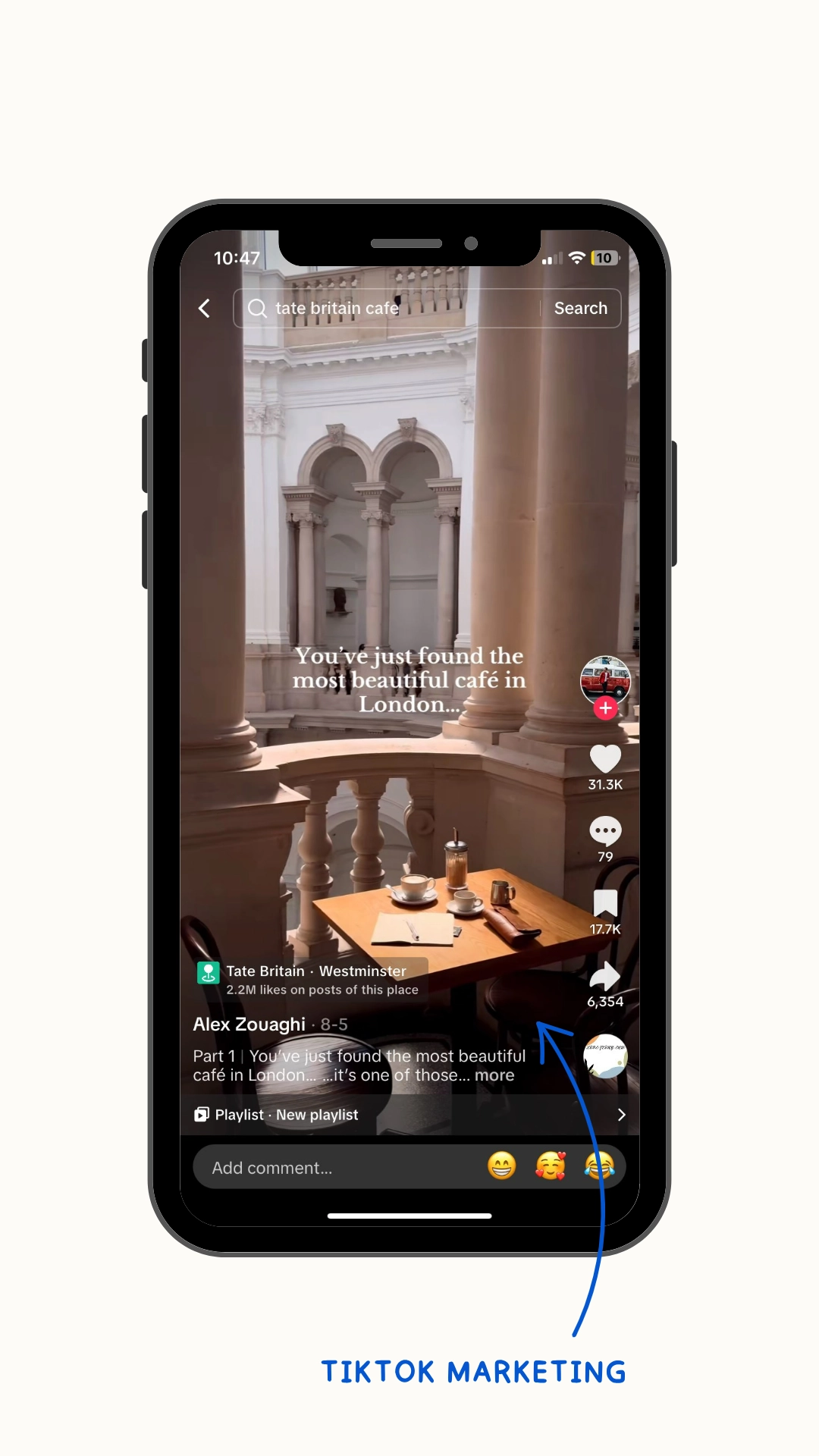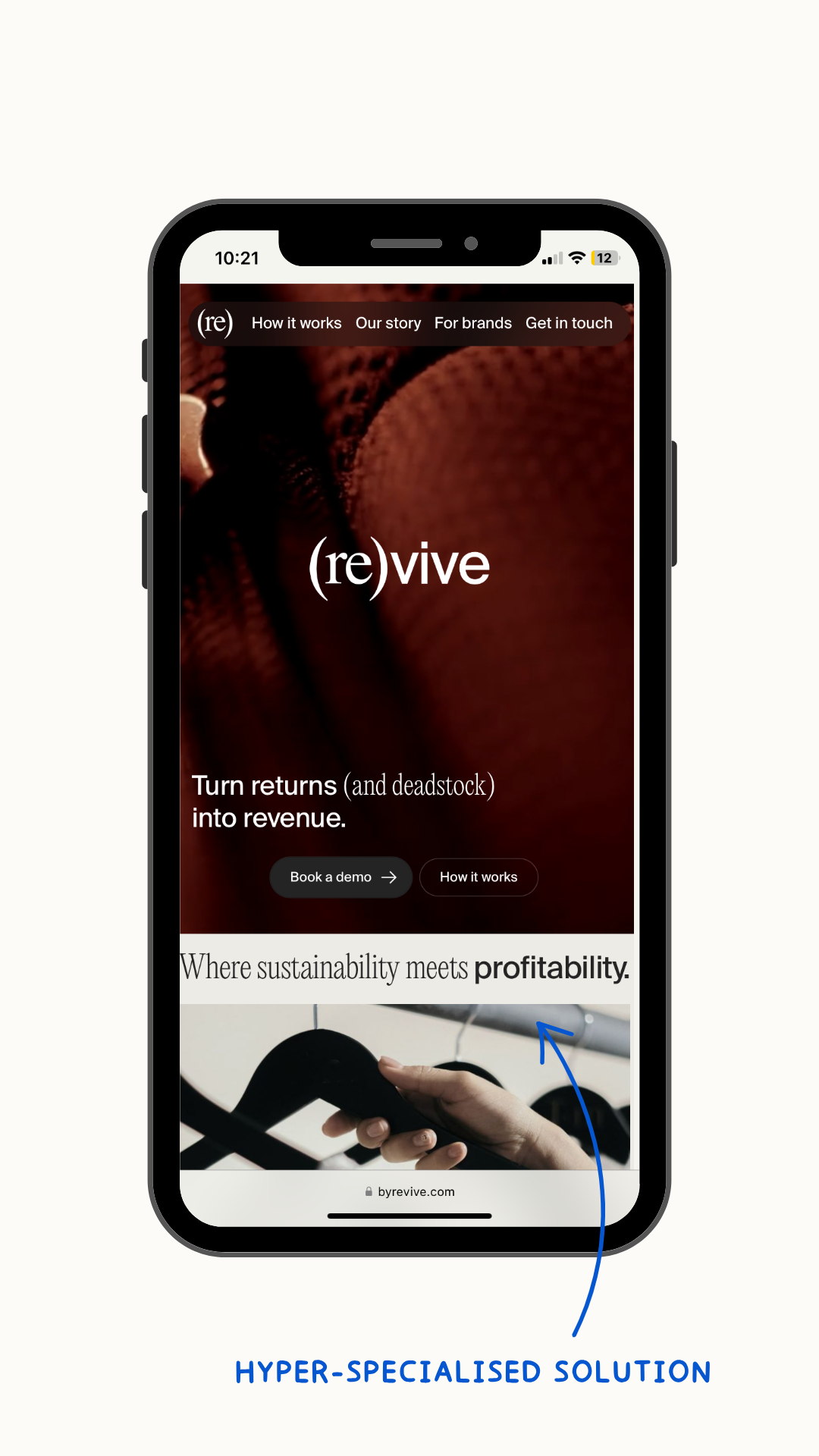Is SEO worth it for your small business?
Well, the short answer is it depends.
Before we dig into that question, let me paint you a scenario.
Picture this:
It’s a sunny morning in London. The city’s just waking up, and two coffee shop owners are gearing up for another day of grinding beans and serving lattes.
They’re in different corners of the city, each hustling to make their mark.
We’ll call these folks Mr. Latte and Mrs. Cappucino.
Both of them are doing everything they can to put their little shops on the map.
They’ve got TikTok videos showing off frothy macchiatos, leaflets plastered on local bulletin boards, and paid ads nudging passersby to stop in for a cup.
But Mrs. Cappucino decided to take it up a notch.
On top of all this, she’s been quietly working on a strategy that’s slower, but way more powerful: SEO.
Instead of just posting cute photos of croissants, she’s pouring time into her website, creating blog posts about the art of a perfect espresso, and making sure she’s easy to find on Google Maps.
She’s targeting phrases like best coffee shop in london and coffee shop camden.
At first, it didn’t look like much.
Her SEO results were like watching paint dry — slow and unremarkable.
But then, over weeks and months, her work started to pay off.
Her coffee shop began popping up every time someone Googled coffee in london.
Tourists with jet lag and locals looking for a new spot were walking through her doors, not because of an ad or a viral post, but because they found her shop naturally — right when they needed it most.
So while Mr. Latte is still hustling, chasing trends, and hoping his next video hits big, Mrs. Cappucino has a steady stream of customers who find her without her having to shout for attention.
And that’s the thing about SEO.
It’s not sexy. It’s not instant. But it works. You do the heavy lifting up front, and then it keeps delivering to you weeks, months and years later.
SEO can be a great strategy, sure, but it’s not a cure-all.
SEO works best when you’re in it for the long haul — laying the groundwork for steady, dependable growth.
But let’s be honest: if you need results yesterday — like you’re trying to draw a crowd for a grand opening or push a time-sensitive sale — you’re better off turning to paid ads or social media to get things moving fast.
In this guide, we’ll break down when SEO is the right call and when it’s not.
We’ll walk through the moments where SEO shines brightest and the times when you might need something with a little more urgency.
1. When you should not invest in SEO
You don't have the resources, time or budget
Let’s get one thing straight: SEO isn’t cheap, and it’s definitely not quick.
Whether you’re outsourcing to an agency, hiring a freelancer, or rolling up your sleeves to do it yourself, you’ll need to dedicate resources upfront before you see any traction.
Most businesses start noticing meaningful results — higher search rankings, more organic traffic, and increased leads — around the 3-to-6-month mark.
But significant gains can take even longer, depending on your industry’s competitiveness and how much effort you’re putting into your strategy.
Set realistic expectations early.
If you go into SEO expecting an overnight transformation, you’ll end up frustrated and discouraged.
SEO is like planting a tree: it takes time to root, grow, and bear fruit.
But once it does, that fruit keeps coming season after season.
Small businesses with limited budgets often start by handling SEO in-house.
This can include:
- Keyword research
- Basic on-page SEO
- Local directory submissions
But while DIY can cover the basics, there’s a ceiling to what you can achieve without professional expertise.
Advanced SEO tasks — like a deep technical audits, backlink strategy, or large-scale content marketing — often require expertise goes beyond what most small businesses can handle.
This is where hiring professionals comes into play.
Agencies or freelancers bring specialised knowledge and resources to the table.
You need immediate results
If time isn’t on your side, SEO isn’t the hero you’re looking for.
SEO is a slow burner — a strategy that sometimes requires months to start delivering the best results.
It’s the long game, and that’s great if you have the luxury of time.
But when you need customers now, paid ads and social media campaigns are your ticket.
Paid ads on platforms like Google or Facebook let you target specific audiences and drive traffic almost instantly.
Need people to RSVP to your event? Paid ads will have them clicking within hours.
Social media, on the other hand, thrives on virality.
With the right content or influencer partnership, you can spark interest and engagement in days, not months – especially on TikTok.

Your target audience doesn't use search engines to find you
Optimising for search engines can work wonders for certain businesses, but in some industries, it’s like bringing a knife to a gunfight.
For example, take hyper-specialised B2B companies like Revive:

This brand partners with fashion brands to turn their deadstock items into revenue streams.
Helping them to become more profitable and sustainable.
Revive’s ideal clients — fashion brands sitting on mountains of unsold inventory — aren’t firing up Google to search how to monetise deadstock or sustainable returns solution.
The solution that Revive provides is so specific that people aren’t actively Googling for it.
SEO wouldn’t be the best investment for brands like this.
Instead, they’re shaking hands at industry conferences, closing deals over golf games with people they’ve known for a decade, and getting the word out through press.
Then there’s the world of impulse buys — think art, fashion, and trendy home goods.
Nobody’s typing taylor swift dog sweater into Google at 2 a.m.
They’re stumbling across it while doomscrolling Instagram or Temu, falling in love at first scroll, and impulsively slapping their credit card details into a pop-up window.
These industries thrive on aesthetics and emotional triggers, not search engine algorithms.
Search engines are built for broad searches, not hyper-niche needs.
If your audience doesn’t know your product exists or is too niche to search for it, SEO becomes a billboard on a highway where your ideal customers rarely drive.
Instead, focus on meeting them where they already are — whether that’s in tight-knit communities, industry events, or niche forums.
2. How to estimate the value of your SEO strategy
If you’ve already got an SEO campaign running — whether you hired a freelancer from UpWork, partnered with an agency, or rolled up your sleeves to do it yourself — you’re probably asking the big question:
Is it working?
And here’s the thing: the answer depends on your goal.
Some businesses treat SEO as a brand awareness machine, driving traffic to get their name out there.
They chase high-traffic keywords, looking to get more eyes on their brand.
But when I work with clients, I measure value by conversions — sales, leads, actual tangible results.
Because traffic for the sake of traffic doesn’t pay the bills.
Conversions do.
And if your SEO isn’t converting, you need to figure out why.
The secret to an effective SEO campaign lies in targeting keywords with buying intent — the phrases people search when they’re ready to make a decision.
3. Is SEO worth it? A quick test to check
When I take on new B2B clients, I like to keep things simple.
One of my first steps is to do a quick keyword check.
Nothing too fancy, just enough to see if I can spot 20 to 30 keywords with some solid buying intent.
These are the search terms people punch into Google when they’re not just browsing — they’re looking to solve a problem, make a purchase, or take action.
Try it out for your business.
Here’s the deal: the best industries for SEO operate in markets where hundreds of keywords with buying intent are available.
Markets like project management software:
But if you’re squinting at the screen, struggling to pull out even 20 decent keywords that make sense, then we know we’re in a niche where SEO might not be the best option.
Now, that doesn’t mean SEO is useless in those industries.
It just means instead of using SEO for the long-term, you should think of it as a quick-hit strategy.
Identify the handful of keywords that pack a punch, rank for them, and then call it a day.
Don’t overinvest in a channel that won’t scale for your business.
On the flip side, if you can type a couple of obvious keywords into any SEO tool and, within minutes, find dozens of others that clearly scream “I want to buy,” you’re in a good spot.
Most businesses I work with fall into this category.
It’s actually pretty rare to come across a profitable company in a niche so out there, so innovative, that no one is searching for it.
If your product or service has a market, chances are it has search volume too.
And if there’s search volume, there’s opportunity.
The takeaway?
Let the keywords guide you.
If they’re plentiful and packed with buying intent, SEO is probably worth every dime and hour you’ll invest.
If not, be strategic: grab the low-hanging fruit and move on to other channels that make more sense for your business.
Thanks for reading, Aggée.
